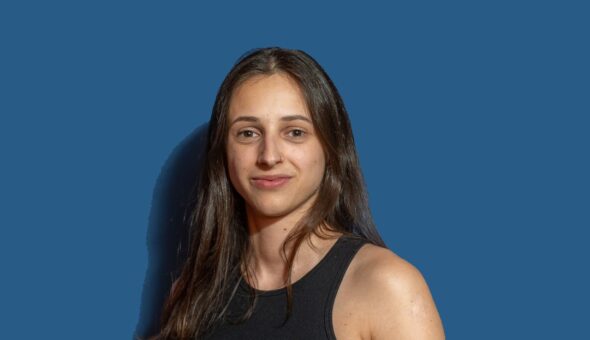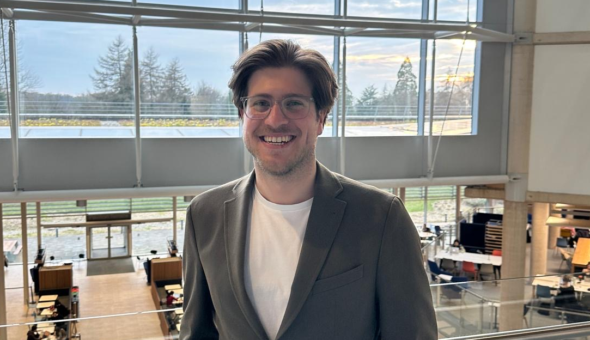Longstanding CBOS member Johanne Grosvold talks to us about her work on corporate boards, and her plans for her year as Acting Director.
You’re Senior Lecturer at the Centre for Business, Organisations and Society - tell us a bit about how you got here
I joined CBOS in 2005 to do my PhD. I’ve been here ever since! I became Deputy Director in 2010, and this year I’m Acting Director while Andy Crane is on sabbatical.
What are you working on at the moment?
There are three main things I’m working on. First, a paper on why directors stay on boards for longer than might be useful to the company. We’re using data from corporate boards in Australia, and considering how board directors respond to the prospect of leaving their directorships. Good corporate governance principles suggest that board service should be limited – there’s a certain amount of time when someone can make a useful contribution, but then they become subject to “group think”. But being on a board is an attractive proposition and maybe that outweighs one’s wish to be distinctive as a director. I’ll be presenting this paper at the Academy of Management in August.
I’m also working on a paper on Australia’s response to the refugee crisis and the governance of global challenges. There are challenges and opportunities in responding to some of the big governance issues that are faced by companies and countries.
Another paper I’m working on is about hypocrisy in business schools, and the extent to which business schools mean what they say when they talk about being committed to sustainability and responsible environmental management in their work.
I’m also working on a funding bid around understanding women’s motivations and aspirations for corporate board directorship.
Where does your interest in corporate boards stem from?
Before my PhD I worked for a FTSE 100 company in their investor relations department. The company went through a major restructuring with a big board shake-up. Previously the average tenure on the board had been in excess of ten years. The company took an active decision to make the board more diverse with more women, more people from ethnic minorities, to bring in diverse talents. So I was fascinated to see the process of that from the inside and see what a transformative power it had. It was around the same time that Norway introduced quotas for women on corporate boards and it was exciting to see that policy change.
Why did you decide to leave business to study for your PhD?
I didn’t feel like I was learning anymore. I’d always wanted to do a PhD, and then one day I saw a headline on the front of a business magazine that said, “Are you one of the Living Dead?”. So many people go into work and do nothing all day, and I wanted to do something with more meaning. So I applied for the PhD at Bath. My business experience was really valuable though – it’s very useful for teaching, to be able to give students that real life insight.
What are you most proud of in your career so far?
In 2011 we won a Best Paper Award for a paper in Corporate Governance: an International Review. It came completely out of the blue as we didn’t even know we were nominated. The paper took a new angle on women and corporate boards, and was one of the first systemic papers looking at women on boards from a cross-national perspective. It was a lovely surprise.
Who has most inspired or influenced you?
For understanding the academic game – Andrew Millington was a huge influence on me. In terms of inspiring research, Amy Hillman, who is now Dean of the Business School at Arizona State, is an astonishing researcher – she wrote one of the first key papers on women on corporate boards.
I’m constantly challenged, in a positive way, by my colleagues in CBOS. It’s a great privilege to work in a research centre where everyone is publishing at such a high level, and where you can have informed conversations about research with people who really know what they’re doing – it’s hugely inspiring. In the last few years we’ve brought in some great new people who have created a whole new dimension to what we do.
What are your plans for the future?
In the immediate term I want to do a good job as Acting Director at CBOS. I want to build on the positive energy and creativity that Andy Crane has generated and make sure we have an exciting year with some good quality events. I have various papers under review that I’ll hopefully see published, and I want to start building relationships with colleagues that I’d like to work with but haven’t managed to reach out to yet.
In the longer term I’d like to get a Chair, maybe have my own Research Centre. I’d like to do more collaborative work not just on papers but on funding bids. And I’d like to upscale my teaching ability – I do enjoy teaching and I’d like to tap into new developments around using technology and online teaching.
Finally, what’s the best thing about Bath?
Being at work doesn’t feel like work. You can be who you are and you’re accepted – it’s a very professional but friendly environment. I really appreciate the fact that you can knock on the door of a senior colleague, an expert in their field, and they’ll always give you the time of day to discuss an idea.
Respond



